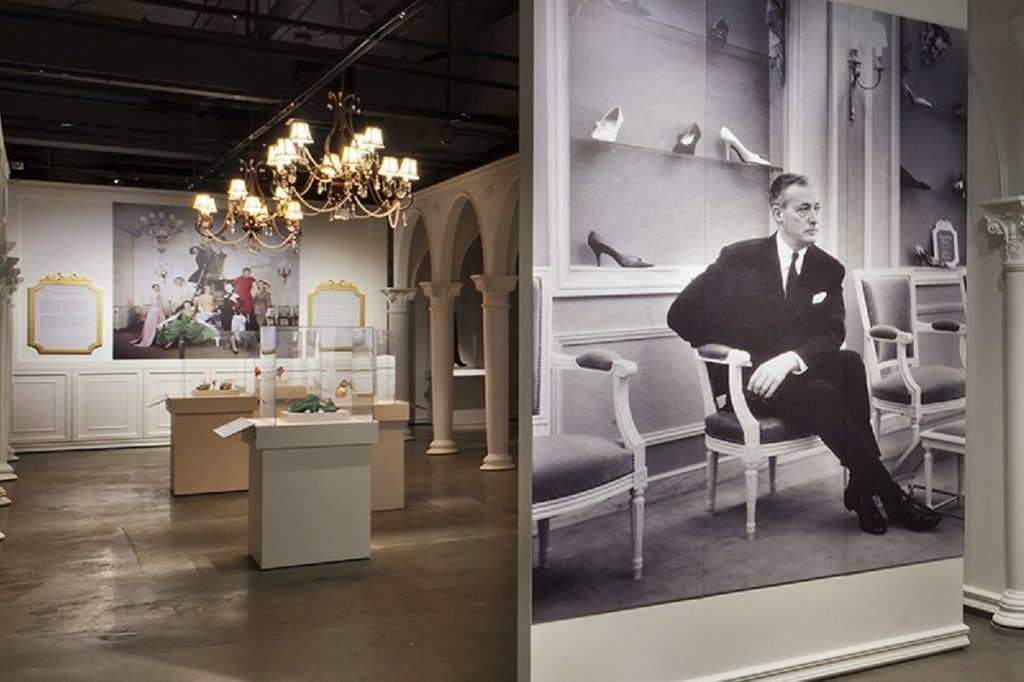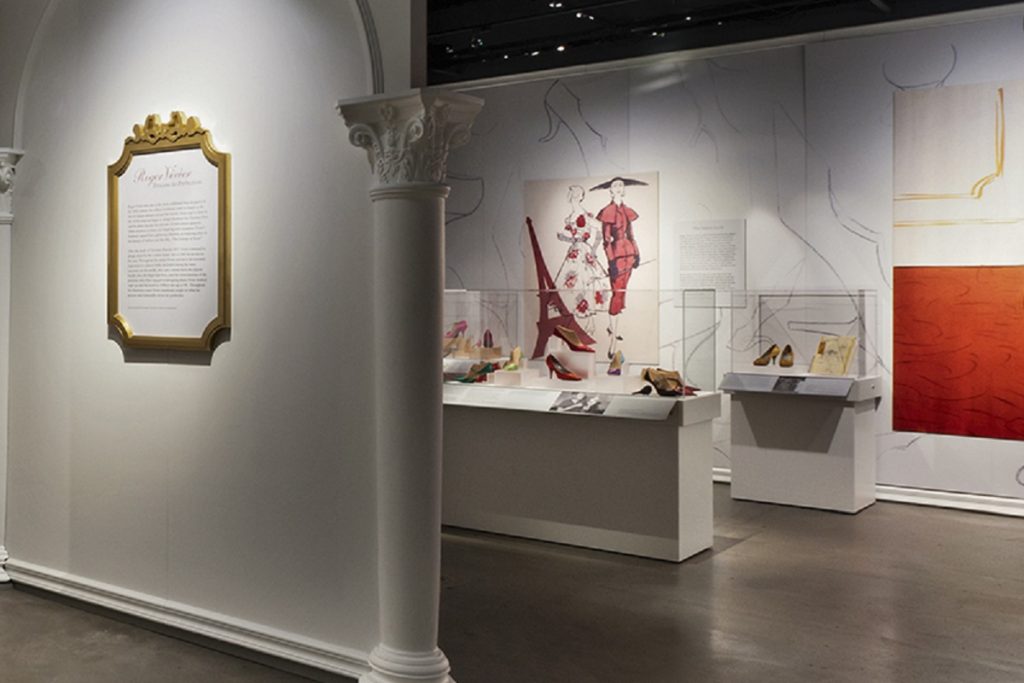Roger Vivier: Process to Perfection
To wear dreams on one’s feet is to begin to give a reality to one’s dreams. – Roger Vivier
Roger Vivier: Process to Perfection focused on the designer who was renowned for the bejewelled and elegantly sculptural shoes that he created throughout his life. Many of his innovations, such as the needle, choc and comma heels are as important in fashion today as when he first introduced them.
Vivier’s career was established in the 1950s when he became the shoe designer for Christian Dior. During his time with Dior his shoes were the epitome of mid-century glamour and Vivier’s early training in scuplture at École des Beaux Arts is evident in the sculptural heels and toes he designed for Dior. After Dior’s death, Vivier continued to produce elegant footwear for the House of Dior but in 1963 he set out on his own. Among his many successes include the pilgrim buckle shoe popularized by Catherine Deneuve, which sold in the thousands, the thigh high boot popularized by Bridget Bardot and the reintroduction of the platform shoe.
Throughout his career, Vivier proved to be extremely responsive to cultural shifts and he remained devoted exploring the artistic potential of shoe design. Ever engaged in designing shoes, Vivier worked right up until his death in 1998 at the age of 90. Throughout his illustrious career Vivier ceaselessly sought to refine his process and continually strove for perfection.
The focus of Roger Vivier: Process to Perfection was on the working process of Vivier and his masterpieces of shoe design. The Bata Shoe Museum’s Vivier holdings were complemented by loans from world-renowned institutions such as the Metropolitan Museum of Art in New York, the Deutsch Ledermuseum in Germany and the Roger Vivier brand.
Visitors to the exhibition saw never before exhibited drawings by Vivier and pull-overs designed for Christian Dior which illuminate his working process. Visitors also enjoyed the jewels of his oeuvre—-the shoes that his working process wrought into perfection.
Images © Bata Shoe Museum.

